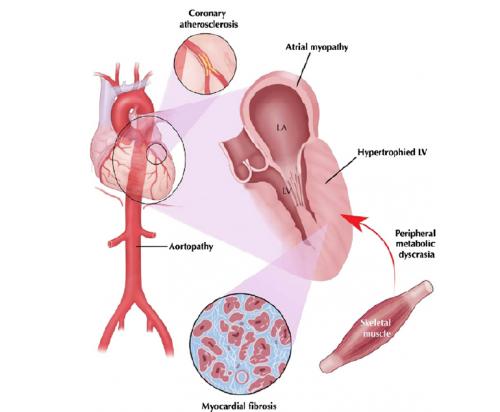Dr. Ramji Mehrotra | Hypertensive Heart Disease

Hypertensive
heart disease, often referred to as hypertensive cardiomyopathy, is a medical
condition characterized by heart damage that is primarily caused by long-term,
uncontrolled high blood pressure (hypertension). When the heart has to work
harder due to elevated blood pressure, it can lead to various complications and
structural changes within the heart.
One
of the primary consequences of hypertensive heart disease is the thickening of
the heart's muscular walls, a condition known as left ventricular hypertrophy.
Leading heart surgeon Dr. Ramji Mehrotra says that this thickening is
the heart's way of adapting to the increased workload imposed by high blood
pressure. Over time, however, it can lead to a reduced ability of the heart to
pump blood effectively, resulting in a decrease in cardiac output and
potentially leading to heart failure.
Hypertensive
heart disease can also damage the coronary arteries, which supply the heart
muscle with oxygen and nutrients. This can result in a condition called
ischemic heart disease or coronary artery disease. When the coronary arteries
are narrowed or blocked due to atherosclerosis, the heart muscle may not
receive adequate blood flow, leading to angina (chest pain) or, in severe
cases, a heart attack.
Additionally,
high blood pressure can contribute to the development of other cardiovascular
problems, including heart arrhythmias, such as atrial fibrillation, which can
increase the risk of stroke. It can also cause the heart to enlarge and dilate,
further impairing its ability to function properly.
The
symptoms of hypertensive heart disease can vary depending on the severity of
the condition and the extent of heart damage. Some of the common symptoms
include breathlessness, chest pain, fatigue, and swelling in the legs and
ankles. However, it is important to note that some individuals may not
experience noticeable symptoms until the disease has advanced.
According
to Dr. Ramji
Mehrotra ,
managing hypertensive heart disease typically involves controlling high blood
pressure through lifestyle modifications and medications, as well as addressing
the complications that may arise, such as heart failure or coronary artery
disease. Lifestyle changes such as adopting a heart-healthy diet, regular
physical exercise, non-smoking, and avoiding excess stress are extremely
beneficial.
If you suspect you have high blood pressure or are at risk for hypertensive heart disease, it is very important to immediately consult with a doctor for proper evaluation and guidance.

Comments